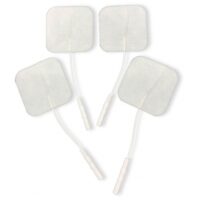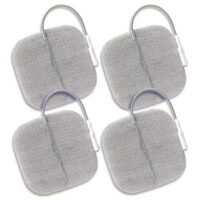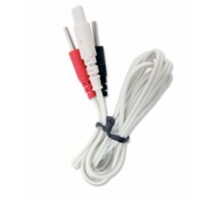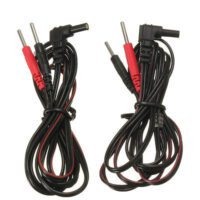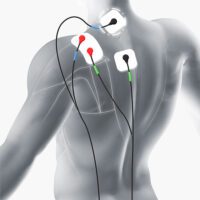Article by John Miller
What is Pain?
Pain is a critical signal from the body indicating injury or distress. Whether you experience acute or chronic pain, understanding its nature is the first step towards effective treatment. This FAQ page, from a physiotherapist’s perspective, will explain the types, causes, and treatments for various pain conditions.
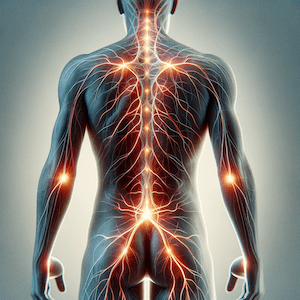
Why does pain occur?
Pain occurs when nociceptors, specialised nerve cells, detect harmful stimuli such as heat, pressure, or chemical changes. These receptors trigger a series of signals through nerve fibres to the brain, where they are interpreted as pain. This response serves as an alert system, helping us avoid further injury.
How is pain transmitted in the body?
The transmission of pain signals begins with receptor nerve cells at the site of injury. These signals travel via nerve fibres (A-beta, A-delta, and C fibres) through the spinal cord to the brain. The speed and type of nerve fibres involved influence the nature of pain—whether sharp, acute, or chronic.
What is the difference between acute and chronic pain?
Acute pain typically occurs suddenly due to injury or illness and resolves as the body heals. Chronic pain, however, lasts longer than three months, often persisting even after the original injury or illness has healed. Chronic pain can involve complex interactions between the nervous system and psychological factors.
More info: Chronic Pain Explained
How can physiotherapy help in managing pain?
Physiotherapy uses a combination of manual therapy, tailored exercises, and education to manage pain. Techniques like joint mobilisation, massage, and specific exercise programs improve muscle strength and flexibility, reducing pain and preventing further injuries.
Physiotherapy generally focuses on non-invasive, drug-free methods for managing pain and improving function. However, in some cases, pharmacological intervention, such as pain relievers or anti-inflammatory medications, may be recommended alongside physiotherapy. This is typically decided by a doctor or pharmacist and is used to manage acute or chronic pain, allowing patients to engage more effectively in physiotherapy exercises. Common medications may include NSAIDs (non-steroidal anti-inflammatory drugs), muscle relaxants, or nerve pain medications.
Learn more about physiotherapy treatments for pain
What is nerve pain, and how is it treated?
Nerve pain (neuropathic pain) is caused by damage or irritation to the nerves and can feel like shooting, burning, or stabbing sensations. Physiotherapy can help manage nerve pain through exercises, manual therapy, and education on nerve mobilisation techniques.
Discover more about nerve pain management
What role does the brain play in pain perception?
The brain plays a significant role in interpreting pain signals. It processes sensory input from nerve cells and can even modulate the intensity of pain based on psychological and emotional factors, which is why pain can feel worse under stress or anxiety.
Can stress or anxiety worsen physical pain?
Yes, stress and anxiety can significantly impact the perception of pain. When stressed, the body releases hormones like cortisol, which can heighten the sensitivity to pain. Additionally, anxiety can lead to muscle tension, which may aggravate existing pain conditions. Managing stress through relaxation techniques, exercise, and cognitive behavioural therapy (CBT) can help reduce the impact of stress on pain.
What can I do at home to manage pain?
Home-based strategies to manage pain include applying ice or heat, engaging in gentle exercise, and practising relaxation techniques such as deep breathing or meditation. Physiotherapists can provide personalised home exercise programs to improve mobility and reduce pain.
Conclusion
Pain, whether acute or chronic, impacts every aspect of life. With tailored physiotherapy techniques such as manual therapy, exercise, and education, pain can be managed effectively. Seek a doctor or physiotherapist's guidance for a personalised pain management plan.
Rochedale - Call 38410277
Book Online: RochedaleSalisbury - Call 32751044
Book Online: SalisburySandgate - Call 32691122
Book Online: SandgateRelated Articles
- Chronic Pain – Discover effective physiotherapy treatments for chronic pain.
- Nerve Pain – Learn about the causes of nerve pain and how to manage it.
- Post-Exercise Muscle Soreness – Understand why your muscles hurt after exercise and how to prevent it.
- Pain Management – Explore physiotherapy techniques for managing various types of pain.
- Spinal Pain – Learn about spinal pain causes and treatment options.
- Back Pain Relief – Discover effective ways to alleviate back pain.
- Joint Pain – Find out how physiotherapy can help with joint pain.
- Manual Therapy – Learn about hands-on techniques to relieve pain.
- Exercise for Pain Relief – Find out how specific exercises can manage chronic pain.
- Massage Therapy – Learn how massage therapy can alleviate muscle and joint pain.
- Understanding Chronic Pain: Causes and Treatments – Discusses the complexities of chronic pain and its management options.
- Nerve Pain Relief: Best Practices – Offers insights into managing nerve pain with both medication and physiotherapy techniques.
- Physiotherapy and Pain Management – Explains the role of physiotherapy in addressing both acute and chronic pain.
Follow Us for Free Tips
Stay updated with the latest tips on managing pain by following us on social media. Our team regularly shares valuable insights to help you stay pain-free and healthy. Follow us on Facebook, Instagram, and Twitter to get expert advice and physiotherapy tips tailored to your needs.

















































